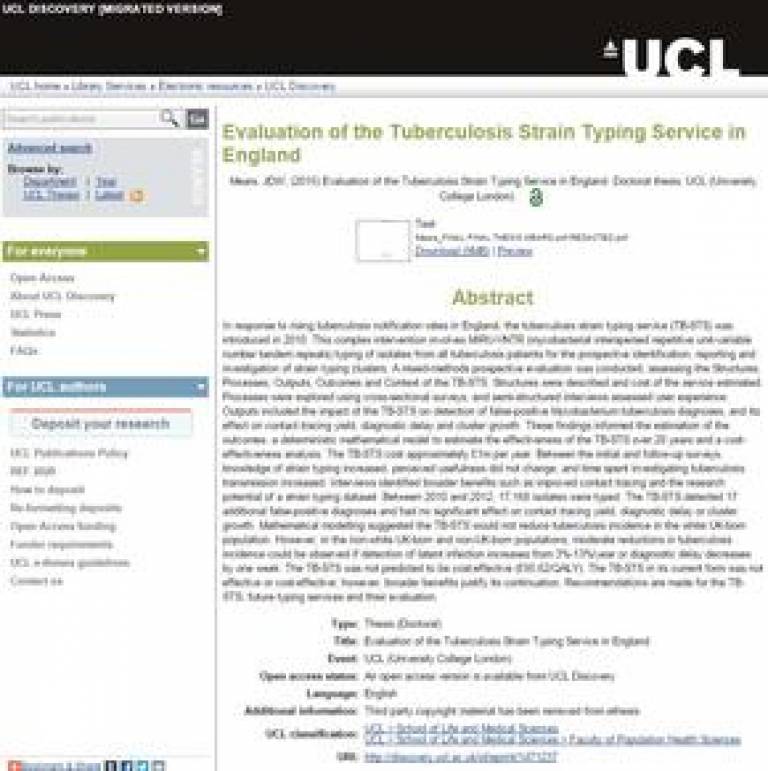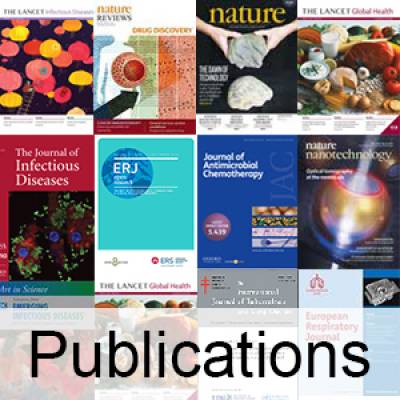Jessica Mears PhD Thesis is now available online
27 November 2015

We're pleased to announce that Dr Jessica Mears' PhD "Evaluation of the Tuberculosis Strain Typing Service in England" has been published on the UCL publications website and is now available to download.
Abstract:
In response to rising tuberculosis notification rates in England, the tuberculosis strain typing service (TB-STS) was introduced in 2010. This complex intervention involves MIRU-VNTR (mycobacterial interspersed repetitive unit-variable number tandem repeats) typing of isolates from all tuberculosis patients for the prospective identification, reporting and investigation of strain typing clusters. A mixed-methods prospective evaluation was conducted, assessing the Structures, Processes, Outputs, Outcomes and Context of the TB-STS. Structures were described and cost of the service estimated. Processes were explored using cross-sectional surveys, and semi-structured interviews assessed user experience. Outputs included the impact of the TB-STS on detection of false-positive Mycobacterium tuberculosis diagnoses, and its effect on contact tracing yield, diagnostic delay and cluster growth. These findings informed the estimation of the outcomes: a deterministic mathematical model to estimate the effectiveness of the TB-STS over 20 years and a cost-effectiveness analysis. The TB-STS cost approximately £1m per year. Between the initial and follow-up surveys, knowledge of strain typing increased, perceived usefulness did not change, and time spent investigating tuberculosis transmission increased. Interviews identified broader benefits such as improved contact tracing and the research potential of a strain typing dataset. Between 2010 and 2012, 17,168 isolates were typed. The TB-STS detected 17 additional false-positive diagnoses and had no significant effect on contact tracing yield, diagnostic delay or cluster growth. Mathematical modelling suggested the TB-STS would not reduce tuberculosis incidence in the white UK-born population. However, in the non-white UK-born and non-UK-born populations, moderate reductions in tuberculosis incidence could be observed if detection of latent infection increases from 3%-13%/year or diagnostic delay decreases by one week. The TB-STS was not predicted to be cost-effective (£95,62/QALY). The TB-STS in its current form was not effective or cost-effective; however, broader benefits justify its continuation. Recommendations are made for the TB-STS, future typing services and their evaluation.
You can find the full text here
 Close
Close


